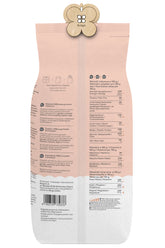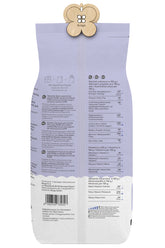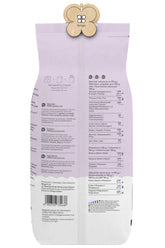The versatile applications of acetone: Safe handling in industrial processes
Acetone, also known as propanone, is an extremely versatile organic solvent used in a wide range of industries and applications. As a clear, highly flammable liquid with a characteristic odor, acetone is an important component of numerous products, from nail polish remover to paint thinners. Yet beyond these everyday applications, acetone also finds diverse uses in industrial processes – whether as a cleaning agent, degreaser, or solvent for various materials.
In this blog post, we will take an in-depth look at the properties and application possibilities of acetone. We will also address the safety aspects of handling this substance to ensure responsible and sustainable use.
The Chemical Properties of Acetone
Acetone is a colorless, highly volatile, and flammable liquid that turns into gas at room temperature. With a boiling point of about 56 °C, acetone evaporates quickly, making it an effective solvent. Furthermore, acetone is highly soluble in water and has strong solvency power for many organic substances such as fats, oils, resins, and plastics.
These properties make acetone a versatile substance in industry. In particular, its ability to dissolve or degrease a wide range of materials makes it a valuable aid in numerous production processes.
Industrial Applications of Acetone
Cleaning and Degreasing
One of the main application areas of acetone is the cleaning and degreasing of surfaces. Due to its excellent solvency power for fats, oils, and resins, acetone is ideal for removing dirt and residues from metal, glass, or plastic surfaces. In the metal industry, for example, acetone is used to degrease and clean workpieces before coating processes.
Acetone is also used in the electronics industry to remove grease and oil residues from circuit boards and other sensitive components. Furthermore, acetone is used in painting and the automotive industry to clean and degrease surfaces before applying coatings.
Solvent for Paints and Coatings
Another important application of acetone is its use as a solvent for paints, coatings, and adhesives. Due to its solvency power for many organic polymers, acetone is excellent for dissolving, thinning, or processing these materials.
In the paint and coatings industry, acetone is used to thin paints, coatings, and inks and to adjust their viscosity. Acetone is also used in adhesive manufacturing to dissolve and process adhesives based on plastics or resins.
Chemical Synthesis
Besides its applications as a cleaning agent and solvent, acetone also plays an important role in the chemical industry as a starting material for the synthesis of various chemicals. For example, acetone can be used to produce bisphenol A, an important base material for plastics.
In addition, acetone serves as a starting material for the production of methyl isobutyl ketone (MIBK), another industrially used solvent. Acetone is also used as a building block in the synthesis of pharmaceuticals and vitamins.
Other applications
In addition to the main application areas mentioned, there are a number of other uses for acetone in industry:
- As a propellant in aerosol cans
- As a component of nail polish removers and cosmetic products
- As an antifreeze in cooling fluids
- As a solvent for plastics in processing
The versatility of acetone is thus demonstrated in its use in numerous industrial processes and products.
Safety aspects when using acetone
Although acetone is a useful and versatile solvent, caution must be exercised in its handling. As a highly flammable liquid with a flash point of approximately -18°C, acetone presents an increased fire risk. Additionally, it can cause health impairments through inhalation or skin contact.
Therefore, it is essential to implement strict safety measures when using acetone in industrial applications:
- Acetone should always be handled in well-ventilated rooms and while avoiding ignition sources.
- Personal protective equipment such as gloves, safety glasses, and appropriate respiratory masks are mandatory when handling acetone.
- All relevant safety data sheets and operating instructions must be carefully observed.
- Regular training of employees on the safe handling of acetone is essential.
- Appropriate fire protection measures and emergency plans must be available in the facilities.
By adhering to these safety standards, the risk of accidents, injuries, and environmental damage when using acetone in industrial applications can be minimized.
Conclusion
Acetone is an extremely versatile organic solvent used in numerous industrial applications. From cleaning and degreasing to its use as a solvent for paints and coatings, and even in chemical synthesis - acetone is an indispensable component of many industrial processes.
However, handling acetone requires special safety measures due to its properties as a highly flammable liquid. Only through consistent adherence to safety standards and employee training can the risk of accidents and health damage be minimized.
Overall, acetone proves to be an extremely versatile and useful solvent, whose safe application in industrial processes is of great importance. With the right knowledge and proper safety measures, acetone can be a valuable component of sustainable and efficient industrial processes.































































































































